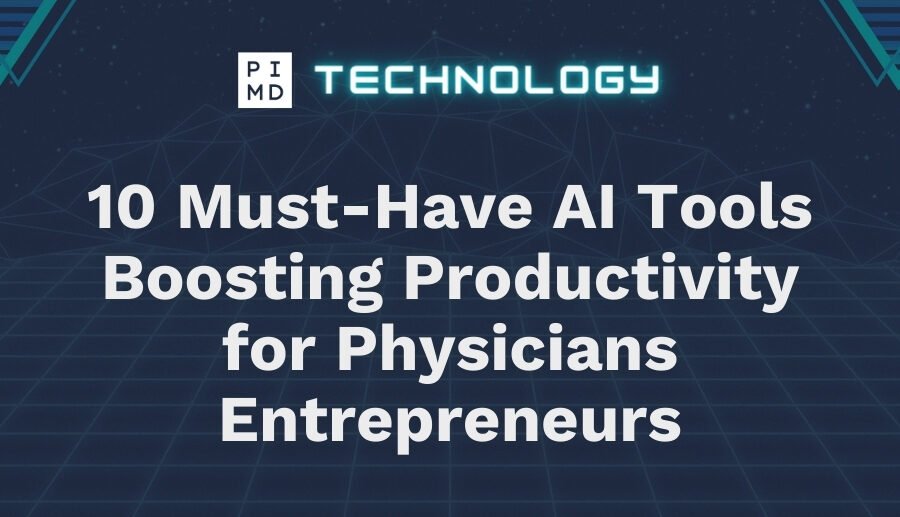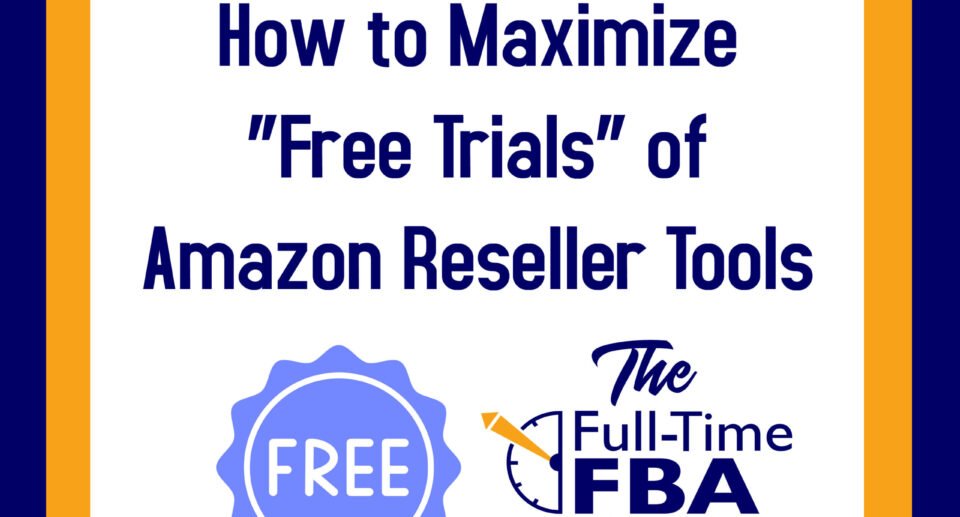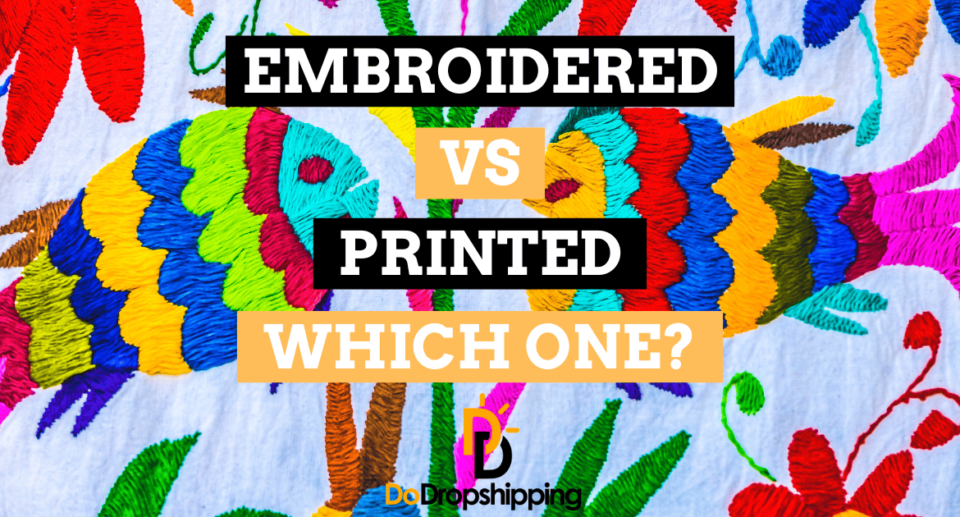10 Must-Have AI Tools Boosting Productivity for Physicians Entrepreneurs

To the doctors reading this, how was your first month running a business compared to your first month in residency?
Answers may differ but one thing might be common for all – the relentless pressure to do “more”. And yes, it is a constant battle for every entrepreneur, especially for physician entrepreneurs. We understand the struggle, it takes A LOT to run a business while still being on residency and it feels like there is never enough time.
I know we’ve shared multiple AI tools before, but there might be more that you need to know about. Today. let’s focus on AI tools that will ramp up your productivity while saving more of your time.
Let’s delve into the top 10 AI tools that can empower physician entrepreneurs, exploring their benefits, limitations, and pricing!
Table of Contents
AI for Repetitive Tasks
Make, Bardeen, and Zapier
Pros: Saves significant time, reduces errors, improves workflow consistency.
Cons: Requires initial setup time, may not be suitable for complex tasks.
These automation tools are the workhorses of efficiency. Imagine automatically sending appointment reminders, generating invoices, or scheduling follow-up consultations – all without lifting a finger. These tools differ primarily in their user interface and specific functionalities. Make and Bardeen cater to more technical users, while Zapier offers a user-friendly interface with pre-built integrations for popular healthcare platforms.
Here’s a quick rundown of these AI tools for productivity:
| Make | Bardeen | Zapier | |
| Primary Function | Automates workflows by connecting apps and services | Automates workflows with a focus on data transformation and manipulation | Automates workflows with a user-friendly interface and pre-built integrations |
| User Interface | More technical, code-based | Visual interface with drag-and-drop functionality | Very user-friendly, with pre-built Zaps (automations) |
| Strengths | Highly customizable, powerful data manipulation capabilities | Focuses on data transformation and integrates with complex systems | Easiest to use, large library of pre-built Zaps |
| Weaknesses | Requires technical knowledge to set up | Less user-friendly interface compared to Zapier | Limited customization compared to Make |
| Ideal User | Technically savvy users who need complex automations | Users who want powerful data manipulation and system integrations | Users who need a user-friendly platform with pre-built automations |
| Pricing | Varies depending on usage, typically starts around $10 per month | Varies depending on usage, typically starts around $15 per month | Free plan with limited features, paid plans start around $19 per month |
AI for Content Creation
ChatGPT and Claude
Pros: Boosts content creation speed, overcomes writer’s block, helps maintain a consistent brand voice.
Cons: May require editing for accuracy and factual correctness, lacks human creativity and nuance.
Large language models (LLMs) like ChatGPT and Claude assist with content creation. Struggling with writer’s block for your practice newsletter? Need catchy headlines or engaging social media posts? These AI tools can be your brainstorming partner, generating ideas, writing drafts, and even proofreading your work.
While both are LLMs, Claude boasts a higher context window (up to 75,000 words) and excels at analyzing longer articles. ChatGPT offers a free tier with limited features, while paid plans start around $18 per month. Claude is currently completely free to use.
Here’s a table detailing more of these AI content-creation tools:
| ChatGPT | Claude | |
| Primary Function | Text content creation and editing | Text analysis & content suggestion |
| User Interface | Text-based prompts and responses | Text-based prompts and responses |
| Strengths | Generates creative text formats, helps overcome writer’s block | Analyzes long content, offers suggestions for improvement |
| Weaknesses | May require editing for accuracy, lacks human-like nuance | Limited free tier, may not be suitable for complex writing tasks |
| Ideal User | Content creators, writers, bloggers | Writers, editors, researchers |
| Pricing | Free tier with limited features, paid plans start around $18 per month | Free to use currently |
AI Virtual Assistants
Notion AI and Superhuman
Pros: Improves organization and time management, reduces email overwhelm, simplifies knowledge capture.
Cons: Notion AI features require the paid subscription, Superhuman’s cost may be prohibitive for some.
These tools become extensions of yourself, streamlining daily tasks and managing information overload. Notion AI helps organize your thoughts and ideas, turning notes into mind maps and even creating websites. Superhuman tackles email, offering features like automated organization, one-click email creation from notes, and AI-powered scheduling integrations.
Notion offers a free basic plan with limited features, while paid plans start around $5 per month. Superhuman has a single paid plan at $30 per month.
Here’s a more detailed specification of these AI assistant tools:
| Notion AI | Superhuman | |
| Primary Function | Brainstorming, note-taking, and content creation with AI assistance | Email management and automation with AI features |
| User Interface | Block-based note-taking environment with AI suggestions | Streamlined email interface with keyboard shortcuts and AI functionalities |
| Strengths | Helps organize ideas, generate content outlines, and translate languages | Automates repetitive tasks, prioritizes emails, and creates drafts based on notes |
| Weaknesses | Requires existing content or ideas to work with | Limited free tier, may not be suitable for complex email workflows |
| Ideal User | Writers, students, project managers | Busy professionals, entrepreneurs, sales teams |
| Pricing | Free basic plan, paid plans start around $5 per month | Single paid plan at $30 per month |
AI for Research and Knowledge Management
Feedly AI and Consensus
Pros: Saves time on information gathering, ensures research is evidence-based, keeps you informed on industry developments.
Cons: Feedly AI requires setting up custom filters for relevant healthcare topics, Consensus’ free tier limits the number of citations and searches.
Staying on top of the latest healthcare advancements and finding evidence-based answers to your questions can be time-consuming. Tools like Feedly AI compile relevant news articles from various sources, while Consensus provides research papers with credible citations.
Feedly offers a free basic plan with limited features, while paid plans start around $3 per month. Consensus operates on a freemium model, with basic features available for free and access to advanced functionalities through paid subscriptions.
Here’s a more detailed rundown of these AI tools for research:
| Feedly AI | Consensus | |
| Primary Function | AI-powered news aggregation | Research paper retrieval with citations |
| User Interface | Customizable filters and news feeds | Search bar for queries and citation browsing |
| Strengths | Saves time on information gathering and personalizes content | Provides credible research sources and evidence-based results |
| Weaknesses | Requires setting up filters for relevant topics | Free tier limitations on citations and searches |
| Ideal User | Busy professionals, researchers, students | Students, researchers, medical professionals |
| Pricing | Free basic plan, paid plans start around $3 per month | Freemium model with limitations in free tier |
AI for Image Generation
Midjourney
Pros: Creates unique and high-quality visuals, saves time and resources compared to traditional design methods.
Cons: Requires practice with prompting for optimal results, may not be suitable for complex image needs.
Say goodbye to stock photos and hello to visuals tailored to your specific needs. Platforms like Midjourney create high-quality images for presentations or patient education materials. Midjourney operates through Discord, requiring users to prompt the AI with specific descriptions to generate images.
It differs from traditional design software by focusing solely on AI-generated content. Pricing is based on a monthly subscription with varying tiers for image generation volume.
Here’s a more detailed rundown of this AI tool for images:
| Midjourney | |
| Primary Function | Image generation from descriptions |
| User Interface | User inputs descriptions through Discord |
| Strengths | Creates unique and high-quality images |
| Weaknesses | Requires practice with prompts for optimal results |
| Ideal User | Graphic designers, marketers, content creators |
| Pricing | Subscription-based pricing with tiers for image generation volume |

Subscribe to receive the 7 Steps you can follow to achieve Financial Freedom
If financial freedom is your goal, there’s no better time to get started than right now.
Unlock actionable steps that you can take every day to fine-tune your goals, discover your interests, and avoid costly mistakes on your financial freedom journey.
Physician Productivity Powered by AI
Look, being a physician entrepreneur is a marathon, not a


